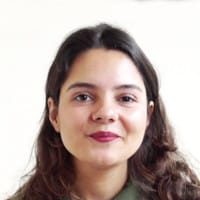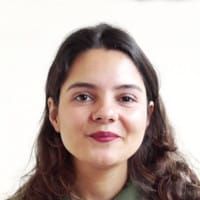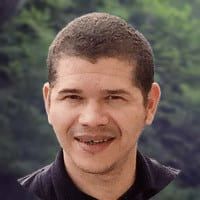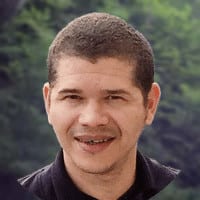Carla Beatriz De Paulo

Carla Beatriz de Paulo holds a Master’s degree in social policy from the University of Brasilia and works for the Brazilian Government since 2011.
What do inequalities look like in different parts of the world, and what can governments, civil servants, and citizens do to eliminate them?
In the second episode of our ‘Inequalities’ mini-series, Carla Beatriz de Paulo – General Coordinator in the Ministry of Social Development in Brazil – tells us about what hides behind the rise of a ‘new middle class’ in her home country, where dependence on State social programs from lower income sectors do not seem to be decreasing.
Touching on racial, gender and social issues, Carla gives us an insight into the needs and limitations that the Brazilian population faces everyday, and tells us how academia and field work can come together to bring about solutions to an unequal playing field.
We spoke with Carla Beatriz de Paulo in Geneva during the conference: Overcoming Inequalities in a Fractured World: Between Elite Power and Social Mobilisation, organised by The United Nations Research Institute for Social Development (UNRISD).
The title of her presentation was:
Brazil’s economic upsurge in the 2000’s : The rise of a “new” middle class or the fragmentation of the working class?
Because of the economic upsurge in the 2000s, part of Brazil’s working class started accessing durable goods and private services that had been historically inaccessible to them. This was interpreted by segments of the government and academia as a shift in class structure, and thus seen as the rise of a “new” middle class in Brazil that was less dependent on public services. This would then allow the state to restrict its role to regulating private services and providing public services to the poorest. This study suggests that interpreting this income shift as the rise of a “new” middle class is not only incorrect, but also potentially harmful to social change, since it incites fragmentation and disengagement within the working class. Alternatively, it argues that those who bene ted from the income shift are a fragment of the working class and far more dependent on state social services than advocates of the new middle class thesis suggest. In order to better understand this phenomenon, this study seeks to investigate the level of access to health and education services of those in this income range. The results obtained through data analysis reveal the predominant use of public health and education services by “new” middle class in 2008 and 2013, respectively.
Find out more about UNRISD here: http://www.unrisd.org

Carla Beatriz de Paulo: Hi, my name is Carla. Beatriz de Paulo. I’m from Brazil. I’m a researcher and a civil servant.
Nerina: What is your main research focus?
Carla: The dynamics of social classes in Brazil, and how social classes relate with the State and social policies.
Nerina: How did you arrive at this topic?
Carla: Since my undergraduate studies, I was always interested in social policies, on a way to improve the quality of life of the population, and I was also very interested in the dynamics of social classes in Brazil; how the middle class and the working class and the elites behaved throughout our history. In the 2000s, when we had major economic growth in Brazil and there was a debate about the rise of a new middle class, I decided to take a deeper look into this phenomenon, and study how middle classes behaved in our recent history.
Nerina: Here at the conference, you presented the results of your recent studies. Could you tell me about this?
Carla: In 2013, I started my Masters studies at the University of Brasilia, and I decided to study this phenomenon of the new middle class, and what was the level of access that theses people had, should they have an education service, whether public or private, in order to understand if these people where really less dependent on State social policies. I analyzed the data from 2003 to 2013 of the Brazilian National Household survey, to compare and compress the public and private provision of health and education services.
What I concluded was that despite what had been said about the new middle class being able to consume private health and education services, data showed that in fact most of these people where still using health and education services provided by the State.
Nerina: Why is this result relevant?
Carla: When people argued that a segment of the population didn’t need public services anymore because they were now able to buy them in the market, it meant that the State could focus only on the extreme poor, and these people could afford their social services. Research has shown that in fact, these people still largely depend on the State to satisfy their basic needs in health and education.
Nerina: And was this unexpected?
Carla: Since the Constitution of 1998, all Brazilians have the right of health provision, so our health system is universal, so anyone can demand for services and education as well, so the State has the duty to provide primary and secondary education for all social classes.
But throughout our history, middle classes and elite have abandoned public services and decided to pay for private education and health services, so the public services basically attend the working class and the poor people. This is basically how things work, but on the other hand, despite that people usually pay for private health insurance, depending on the case, they also depend on the public health sector, because for high complexity treatments, usually you have to go to the public health centers, because the private sector is unable to provide this kind of treatment.
Brazilians also receive tax exemptions when they declare that they use private health and education services, so in the end, everybody depends somehow on the State to have access to health and education, whether public or private.
Nerina: And what does this result mean for policy making?
Carla: I think it would be important for the government to focus not only in fostering and regulating the private market of health insurances and private education, but in strengthening the provision of public social services, expanding and improving the quality of public education, and also of public health.
Nerina: What are, in your opinion, the biggest challenges in this field in Brazil right now? And what would you change if you could?
Carla: I would insist on the provision of universal social services; not only health and education, but also transportation and housing. I would also implement policies to tackle inequality rates, which are very high in Brazil in terms of income and properties, so this is basically what I think we need now.
Nerina: Is there somebody who inspires or inspired you in a special way?
Carla: When I was in University during my undergraduate studies, I had some professors who were also civil servants, and it was a very promising moment in Brazil at that time, in 2007, 2008, and they really inspired me to not only work with research but also try to apply for a public position and to work with policy implementation.
This was really important for me and they made me see how academia and the civil service can really complement each other.
Nerina: Why and how do you think that research and civil public service complement each other?
Carla: At University, in academic debates, if you’re not careful enough you can detach yourself from the real work and how things really happen, and the limits and the constraints of the role and the possibilities of the State, so when you work in the Government, you are aware of all these possibilities and constraints; you become more realistic. On the other hand, if you only work in the civil service, you can become too skeptical and too pragmatic and refrain from seeing a bigger picture and making some important reflections. That’s why I think having both perspectives is very complementing and enriching for both of them.
Nerina: If you could speak with an influential politician, what would you tell her or him?
Carla: I would suggest to this person to take gender and race and social inequalities into consideration while implementing programs, and I would also suggest – or really, warn them – about the importance of communicating with the population in a very transparent and clear way so that people from all social classes are able to understand how the policies that are being implement work and how it can improve their lives and the lives of the collective.
Nerina: In your opinion, is there a need to improve the understanding of the role of the state?
Carla: We have some problem related to that, because usually when public services work, people don’t realize that it has to do with the State, it has to do with the Government, but when they fail, it’s when they realize that it does have to do with the Government. I think it’s important to communicate with the population constantly about what is being done, so that they understand that this is not something that is happening only because of the economy, because of their personal efforts, because otherwise, you can think that your improvement in life is due to your effort and your merit, and I think this can be very harmful for a collective mentality and progressive social changes.
Nerina: What would you tell a recipient of public aid?
Carla: We are in a very difficult moment right now, in my country. We are very concerned about the people, and how their lives are going to be in the future. But I think I would tell these people that they should fight for their right, because they have lots of rights, an they’re probably unaware of their rights and their powers, and they should demand the State provision of public services because we have a highly regressive tax regime in Brazil, so everybody’s funding these services and the people who need them the most should be able to receive them.
Nerina: How personal is what you are doing to you?
Carla: I would say it’s very personal. I think the world is very unfair and these bothers me a lot, and it bothers me even more as a person who should be working for changing this, not only academically but professionally, so all types of inequality bother me a lot. Not only social, but also in Brazil’s case, racial inequalities and gender inequalities as a woman. I think these are my main concerns.
Nerina: What is your perspective about gender and race inequality in Brazil?
Carla: I think gender and race inequalities appear in different forms depending on the country. Brazil, for example, we have a slavery past, so race is a very important issue in our country, but since we never had formal segregation as other countries like the US and South Africa, most people believe we don’t have racism anymore, and we are a mixed population and there is no racism, that there is no open form of racism, but I disagree on this perspective. If you check data about access to the labor market, income, education, health, it’s possible to notice how the black people are underprivileged, and suffer several forms of subtle of racism and discrimination. This is something we have to take into consideration while formulating public policies in Brazil. It’s something very important.
About gender, even though we don’t have, like some countries, some formal mechanisms of discrimination between men and women, sexism is something very common in the Brazilian society and we still have gender gaps in several fields in terms of payment, labor relations, reproductive rights, and it’s also very important to take this into consideration while formulating public policies.
Nerina: We often speak about what developing countries can learn from developed countries, but what could other countries learn from Brazil?
Carla: First, in terms of public policies, over the last decade we had some very successful experiences regarding food security policies, water provision and conditional cash transfers that have be very helpful for developing countries. In terms of a broader view, I think we are, in general, very welcoming and warm, so I think this is something that can be very useful, too.
Nerina: Do you have a dream?
Carla: My dream, which I haven’t achieved yet, is to work on the implementation of a social program in a way that I feel that I’m changing our social reality, because so far, I have done research, I have worked on public policies, but in a very distant way from our reality, and I could see some impact, but something very broad. I would like to work on something more specific and really get in touch with change.
Nerina: Thank you so much for this conversation.
Carla: You’re welcome.
Nerina: Thank you so much for watching, thank you so much for listening, and thank you so much for sharing. Next time, we are going to continue with our mini-series about inequalities. Hope to see you soon again. Bye and ciao.
Carla Beatriz de Paulo holds a Master’s degree in social policy from the University of Brasilia and works for the Brazilian Government since 2011.






